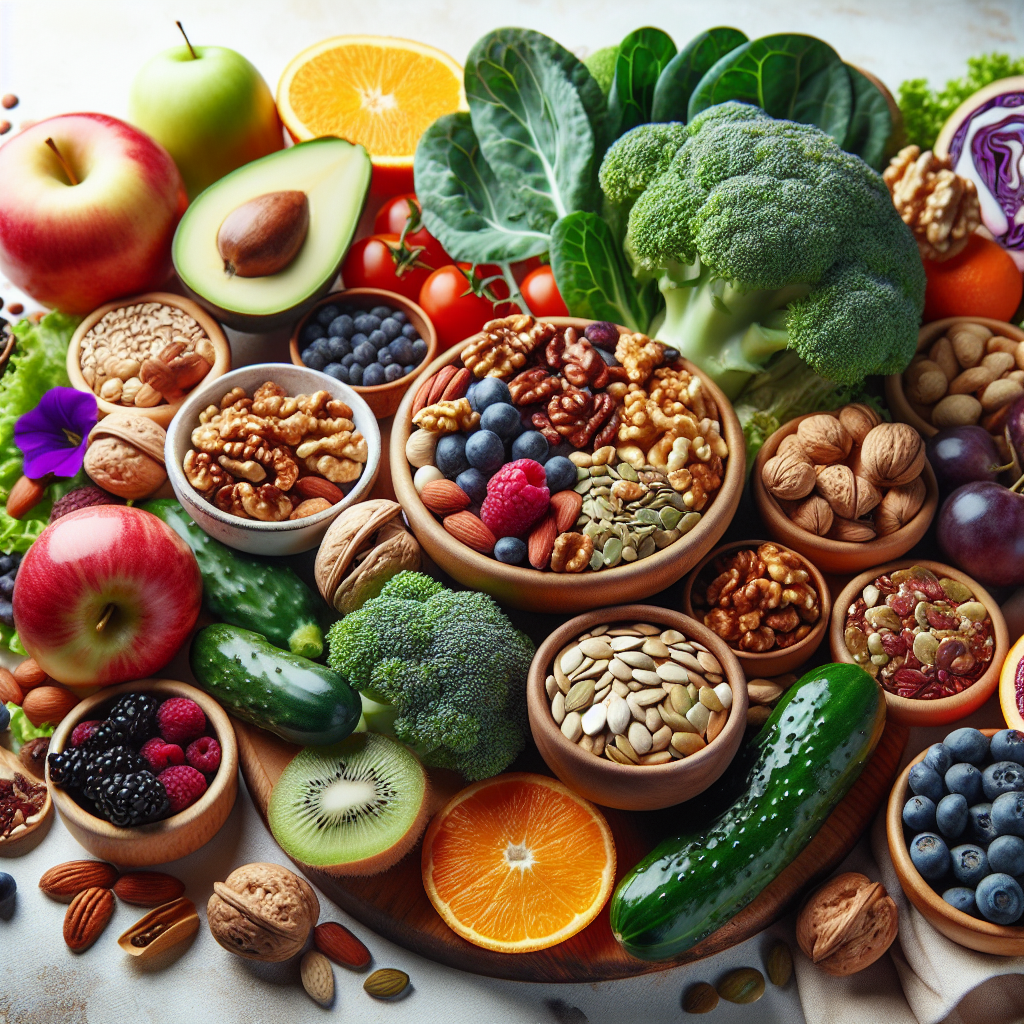Maintaining a strong pelvic floor is essential for overall health, particularly for women who may experience weakened muscles due to childbirth, aging, or other factors. While exercises like Kegels are often recommended, nutrition also plays a crucial role. Incorporating organic, nutrient-dense foods can help support pelvic floor strength, improve muscle function, and enhance recovery. Below, we explore the best organic foods to strengthen your pelvic floor naturally.
Why Nutrition Matters for Pelvic Floor Health
The pelvic floor consists of a network of muscles, ligaments, and connective tissues that support the bladder, uterus, and rectum. A well-balanced diet rich in essential nutrients helps maintain muscle elasticity, repair tissues, and reduce inflammation. Organic foods, in particular, provide higher nutrient density without harmful pesticides, making them an excellent choice for pelvic health.
Key Nutrients for Pelvic Floor Strength
Certain vitamins and minerals are especially beneficial for pelvic floor muscles:
- Magnesium – Supports muscle relaxation and prevents spasms.
- Vitamin C – Promotes collagen production for tissue repair.
- Omega-3 Fatty Acids – Reduces inflammation and supports circulation.
- Fiber – Prevents constipation, reducing strain on pelvic muscles.
- Protein – Essential for muscle maintenance and recovery.
Top Organic Foods for a Stronger Pelvic Floor
1. Magnesium-Rich Foods
Magnesium helps relax muscles and prevent cramping, which is crucial for pelvic floor function. Some excellent organic sources include:
- Spinach – A leafy green powerhouse packed with magnesium and iron.
- Pumpkin Seeds – A delicious snack that also provides zinc for tissue repair.
- Almonds – High in magnesium and healthy fats that support muscle health.
- Bananas – Offer potassium and magnesium for muscle relaxation.
2. Vitamin C-Packed Fruits and Vegetables
Vitamin C aids in collagen synthesis, which strengthens connective tissues in the pelvic floor. Organic options include:
- Oranges and Citrus Fruits – Excellent for immune support and collagen production.
- Bell Peppers – Particularly red peppers, which contain more vitamin C than oranges.
- Broccoli – A fiber-rich vegetable that also provides antioxidants.
- Kiwi – Contains enzymes that aid digestion and reduce bloating.
3. Omega-3 Rich Foods
Omega-3 fatty acids help reduce inflammation, which can ease pelvic discomfort and support muscle function. The best organic sources are:
- Chia Seeds – A plant-based omega-3 powerhouse with added fiber.
- Flaxseeds – Supports hormonal balance and tissue health.
- Walnuts – A convenient snack rich in healthy fats.
- Wild-Caught Salmon – One of the best sources of DHA and EPA omega-3s.
4. High-Fiber Foods for Pelvic Support
Fiber is essential for digestive health, preventing constipation that can strain pelvic muscles. Opt for these organic choices:
- Lentils and Beans – Provide protein and fiber for sustained energy.
- Quinoa – A complete protein that also aids digestion.
- Berries – Blueberries, raspberries, and strawberries are rich in antioxidants.
- Avocados – Offer healthy fats and fiber for muscle health.
Hydration and Herbal Support
Staying hydrated is equally important for pelvic floor function, as dehydration can lead to muscle cramps and urinary issues. Drinking plenty of water and herbal teas like chamomile or ginger can help reduce inflammation and support muscle relaxation.
Foods to Avoid for Pelvic Floor Health
Certain foods can irritate the bladder or contribute to inflammation, including:
- Processed foods high in sodium.
- Caffeinated and carbonated beverages.
- Spicy foods that may irritate the bladder.
- Alcohol, which can lead to dehydration.
Incorporating These Foods Into Your Diet
To maximize benefits, try these simple meal ideas:
- Breakfast – A smoothie with organic spinach, banana, chia seeds, and almond milk.
- Lunch – A quinoa bowl with roasted bell peppers, avocado, and wild salmon.
- Snacks – Pumpkin seeds, walnuts, or fresh berries.
- Dinner – Lentil soup with organic vegetables and a side of steamed broccoli.
By prioritizing these nutrient-dense, organic foods, you can naturally strengthen your pelvic floor, improve bladder control, and enhance overall well-being.
